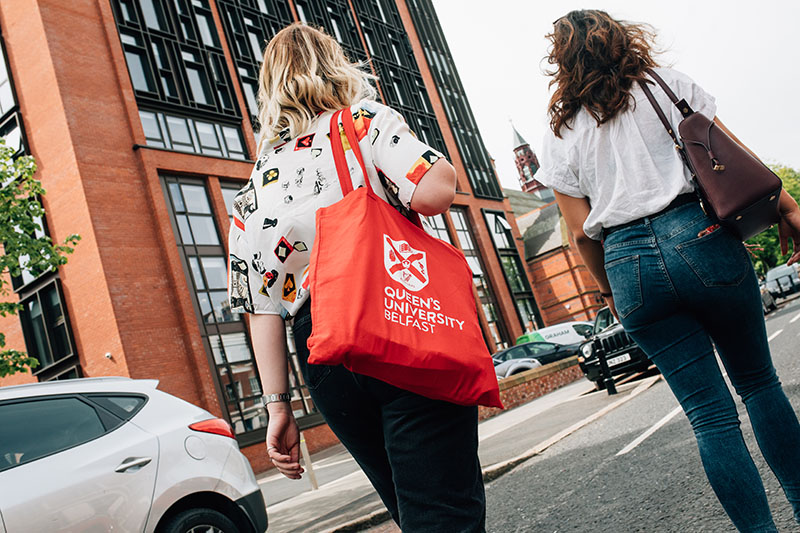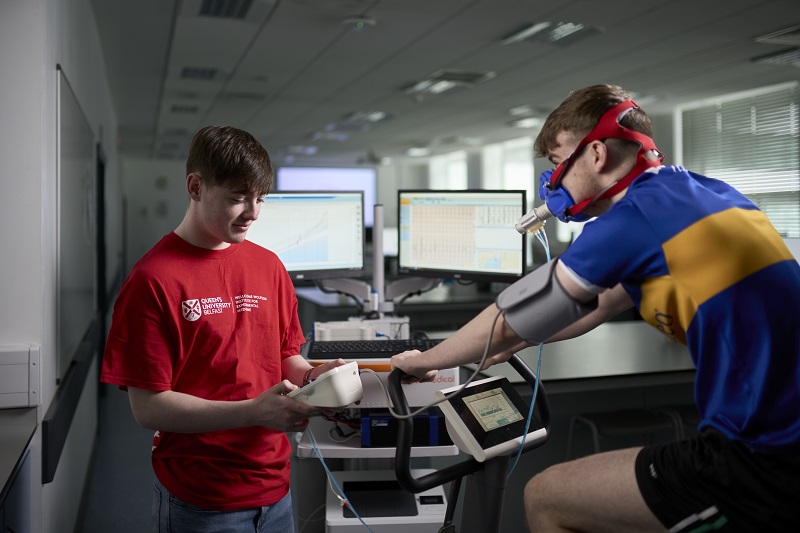
Amazing student experience
There are over 200 student-led clubs and societies on campus; while a £20 million sports investment has helped establish our reputation as one of the premier sporting universities in the UK and Ireland.
If you have a passion for science and want to make a real difference in the world, then you could achieve your ambitions by choosing Queen's.
Biomedical scientists focus on the role of cells, organs and systems in the human body; an exciting and interesting subject area that is highly relevant to the understanding and treatment of human diseases.
Human Biology is the integrated study of human anatomy and physiology, including the study of the body in health and disease. It covers a wide range of topics, ranging from genetics, microbiology and immunology to the core disciplines of anatomy, microanatomy and physiology.

Biomedical scientists focus on how cells, organs and systems function in the human body; an area that is highly relevant to the understanding and treatment of human diseases.
Biomedical Science comprises the sciences related to medicine and in particular these specialist disciplines of diagnostic Biomedical Science as practised in Health Service Laboratories: Clinical Bacteriology and Immunology, Clinical Biochemistry, Haematology and Transfusion Science, Histopathology and Cytology.
The course is aimed at students wishing to pursue a career in: Diagnostic laboratory science, Clinical trials, Government or Charity-funded research laboratories or a career in the Pharmaceutical or Biotechnology Industries.

Human Biology is the integrated study of human anatomy and physiology, including the study of the body in health and disease. It covers a wide range of topics, ranging from genetics, microbiology and immunology to the core disciplines of anatomy, microanatomy and physiology.
Specialist subject areas which can be studied in detail include Pharmacology, Topographical Anatomy, Exercise and Applied Physiology, Developmental Studies, Embryology, Neuroscience and Science Communication.
This course leads to career opportunities in the medical and pharmaceutical industries, teaching, scientific publishing or the scientific civil service. Many students go into further study after their degree, completing Master’s, PhDs or Medical degrees.
Leave your details using the registration form above to receive more information.
Get in contact directly by emailing: askmhls@qub.ac.uk
To begin your application, visit the UCAS website